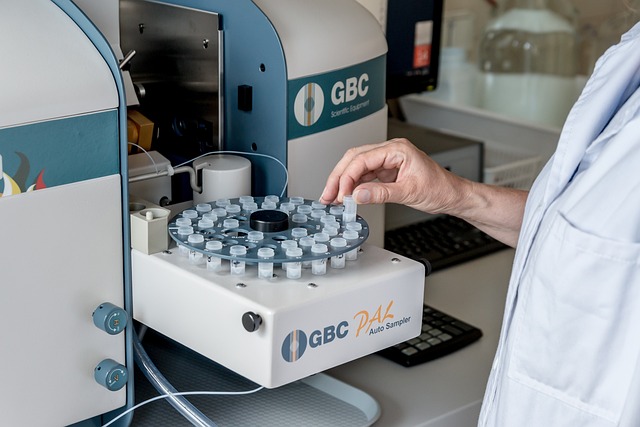Liver Function Tests (LFTs) are key diagnostic tools for gauging liver health in the UK, including cholesterol blood tests that measure LDL ('bad') and HDL ('good') cholesterol. These tests reveal lipid profiles critical for diagnosing and managing liver conditions and cardiovascular risks. Understanding your cholesterol profile through a Cholesterol Blood Test UK empowers you to make informed decisions about diet, lifestyle, and treatment to maintain optimal blood cholesterol levels.
In the UK, medical professionals often rely on Liver Function Tests (LFTs) to assess liver health. This article delves into the fundamental aspects of LFTs, focusing specifically on the cholesterol blood test—a key component in understanding a patient’s lipid profile. We explore what LFTs measure, the significance of cholesterol levels, and how medical professionals interpret results, guiding them towards appropriate next steps for optimal patient care.
- Understanding Liver Function Tests (LFTs): What They Measure and Why
- Cholesterol Blood Test: A Focus on Lipid Profile in LFTs
- Interpreting Results: Normal Range, Abnormalities, and Next Steps for Medical Professionals
Understanding Liver Function Tests (LFTs): What They Measure and Why
Liver Function Tests (LFTs) are a crucial diagnostic tool for medical professionals, offering insights into the health and functionality of the liver. These tests measure various enzymes and substances in the blood, providing a comprehensive overview of how well the liver is performing its essential tasks. LFTs play a vital role in detecting and diagnosing liver damage, diseases, or abnormalities.
Key markers include levels of enzymes like alanine aminotransferase (ALT) and aspartate aminotransferase (AST), which are often elevated when there’s liver cell injury. Bilirubin, a byproduct of red blood cell breakdown, is another critical indicator; increased levels can suggest obstruction or damage to the bile ducts. Additionally, tests may reveal abnormalities in cholesterol and lipid profiles, such as high cholesterol blood test UK results, indicating potential liver issues or metabolic disorders. These tests are essential for making accurate diagnoses and guiding treatment plans, ensuring patients receive the most appropriate care for their liver health.
Cholesterol Blood Test: A Focus on Lipid Profile in LFTs
Cholesterol blood tests are a crucial component of Liver Function Tests (LFTs) in the UK, providing valuable insights into an individual’s lipid profile. This profile offers a comprehensive view of various cholesterol types present in the blood, such as low-density lipoprotein (LDL), high-density lipoprotein (HDL), and triglycerides.
LDL cholesterol is often referred to as ‘bad’ cholesterol due to its association with an increased risk of cardiovascular diseases. On the other hand, HDL cholesterol, or ‘good’ cholesterol, helps remove LDL cholesterol from the bloodstream, playing a protective role in heart health. Lipid profiles generated through cholesterol blood tests allow medical professionals to assess these levels and make informed decisions regarding patient care, particularly for those at risk of or managing liver-related conditions.
Interpreting Results: Normal Range, Abnormalities, and Next Steps for Medical Professionals
Liver function tests are a vital tool for medical professionals to assess liver health. By understanding the various components measured in LFTs, such as enzymes, bilirubin, and cholesterol (including lipid profile), healthcare providers can accurately interpret results and identify potential liver abnormalities. For individuals in the UK undergoing a cholesterol blood test as part of their LFTs, recognizing the normal ranges and knowing how to proceed with abnormal findings is key to early detection and effective management of liver-related issues.
